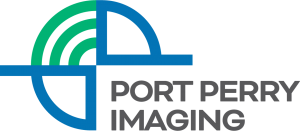THYROID BIOPSY
(FINE NEEDLE ASPIRATION)
What is a Thyroid Biopsy?
A thyroid biopsy is a procedure in which a small sample of tissue is removed from the thyroid gland and looked at under a microscope for cancer, infection, or other thyroid problems. The thyroid gland is found in front of the windpipe (trachea), just below the voice box (larynx).
A sample of thyroid tissue can be taken by:
- Fine-needle biopsy. Your doctor puts a thin needle through the skin and into the thyroid gland.
Why is it done?
A thyroid biopsy is done to:
- Find the cause of a lump (nodule) found in the thyroid gland. Lumps in the thyroid gland may be found during a physical examination or seen on a thyroid ultrasound test or radioactive thyroid scan.
- Find the cause of a goiter. Symptoms of a goiter include breathing and swallowing problems, paralyzed vocal cords, a feeling of fullness in the neck, and weight loss.
How to prepare
Tell your doctor if you:
- Take any medicines regularly. Be sure your doctor knows the names and doses of all
your medicines. - Are allergic to any medicines, including anesthetics.
- Have had bleeding problems or take blood-thinners, such as aspirin or warfarin (Coumadin, for example).
Before having a thyroid biopsy, you may need to have blood tests to see whether you have any bleeding problems or blood-clotting disorders.
Patient Preparation
To prepare for a thyroid biopsy:
- You do not need to do anything before a needle biopsy. You will be awake during the biopsy.
Just before the test, you will remove your dentures (if you wear them) and all jewelry or metal objects from around your neck and upper body.
Before having a thyroid biopsy, you need to sign a consent form that says you understand the risks of the thyroid biopsy and agree to have the test done. Talk to your doctor about any
concerns you have regarding the need for the test, its risks, how it will be done.
A needle biopsy is done in a hospital, clinic, or your doctor’s office. During the test, you will lie on your back with a pillow under your shoulders, your head tipped backward, and your neck extended. This position pushes the thyroid gland forward, making it easier to do the biopsy. It is important to lie very still.
How it is done
During the biopsy. Do not cough, talk, or swallow when the needle is in place. A needle biopsy takes about 5 to 10 minutes. Before the biopsy, your doctor cleans the skin over your thyroid gland with antiseptic.
Your doctor may use an ultrasound to guide the placement of the needle. He or she will put a thin needle into your thyroid gland and take out a small amount of thyroid tissue and fluid.
The tissue is looked at under a microscope. A small bandage is placed over the area where the needle was inserted.
How it feels
You may find it uncomfortable to lie still with your head tipped backward. During a needle biopsy, you may feel a quick sting or pinch in your neck. The biopsy site may be sore and tender for 1 to 2 days. You can take nonprescription pain medicine, such as acetaminophen, for the discomfort.
Risks
There is a small chance of problems from a thyroid biopsy, such as infection and bleeding.
Ongoing bleeding can be a problem for people with bleeding disorders. Aspirin, Warfarin (such as Coumadin), and other blood-thinning medicines can make bleeding more likely. Your doctor will give you specific instructions on when to call him or her with problems.
How it is done
Call your doctor immediately if you have:
- A lot of bleeding through the bandage.
- A hard time swallowing.
- Signs of infection, such as: Increased pain, swelling, redness, or warmth around the biopsy site.
- Red streaks spreading from the biopsy site.
- Drainage of pus from the biopsy site.
- Swollen lymph nodes in the neck.
- Fever.
What to think about
Many thyroid tumors are small, and the biopsy sample may come from an area of the thyroid that is free from disease. A fine-needle biopsy can have a false-negative result.

What should I do if I cannot make my appointment?
If you cannot make your appointment, it is important that you notify Port Perry Imaging at 905-985-9727 as soon as possible.

Have Questions?
Read our FAQ

